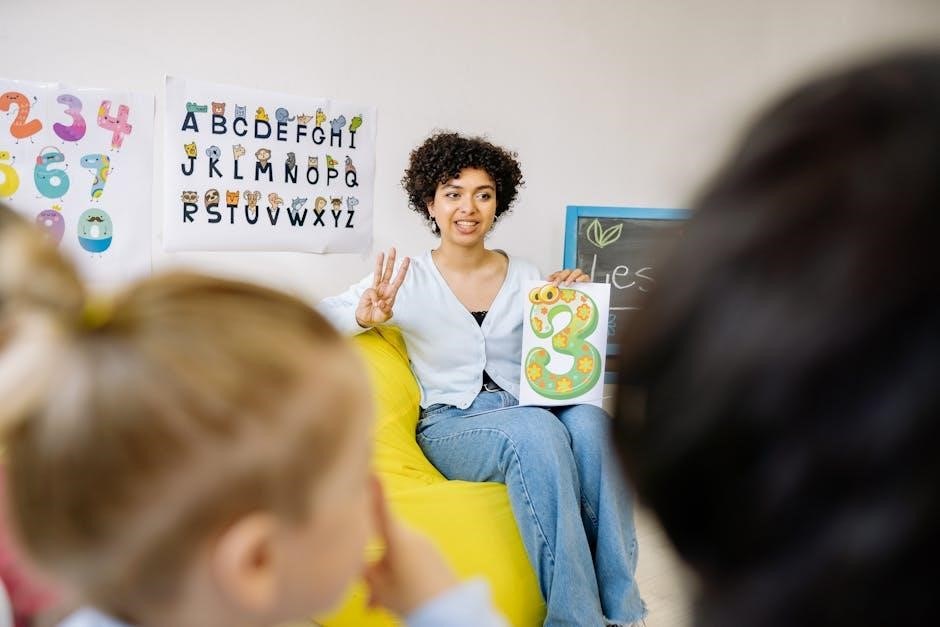Special Instruction is a tailor-made approach within early intervention, addressing the unique developmental needs of children from birth to age three. It focuses on individualized support for those facing developmental delays.

Defining Early Intervention and Special Instruction
Early intervention is systematic work aimed at a child’s development. Special instruction, an early intervention service, promotes caregiver-child interactions. It supports caregivers in learning new strategies to enhance their child’s overall development.
Tailor-Made Approach
At its core, early intervention special instruction embodies a tailor-made approach, meticulously crafted to address the specific developmental challenges encountered by individual children. Recognizing that each child possesses a unique set of strengths, needs, and learning styles, this approach eschews a one-size-fits-all mentality. Instead, it prioritizes individualized assessment and personalized intervention strategies.
This bespoke methodology involves a comprehensive evaluation of the child’s current developmental level, encompassing cognitive, social, emotional, and physical domains. Furthermore, it takes into account the child’s family dynamics, cultural background, and environmental context. Armed with this holistic understanding, special instructors collaborate closely with families and other professionals to design an intervention plan that aligns perfectly with the child’s unique profile.
The tailor-made approach ensures that interventions are not only developmentally appropriate but also culturally sensitive and family-centered, maximizing the child’s potential for growth and fostering a supportive and nurturing environment. This personalized attention is paramount for effective early intervention.

The Role of a Special Instructor
A Special Instructor (SI) supports the social, emotional, and cognitive development of young children. They use their knowledge of early childhood to work with children and families.
Supporting Social, Emotional, and Cognitive Development
Special Instructors play a vital role in fostering the holistic development of young children within early intervention programs. Their expertise extends to nurturing social, emotional, and cognitive skills, laying a strong foundation for future learning and well-being.
In the realm of social development, Special Instructors facilitate increasing play skills, encouraging children to socialize effectively with peers and adults. They guide children in understanding social cues, developing empathy, and building positive relationships.
Emotionally, Special Instructors create a safe and supportive environment where children can express their feelings and learn healthy coping mechanisms. They help children develop self-regulation skills, manage their emotions, and build self-confidence.
Cognitively, Special Instructors design activities that stimulate curiosity, problem-solving, and critical thinking. They help children attend and participate in adult-directed activities, fostering attention span and cognitive skills.

Key Principles of Special Instruction
Several key principles underpin effective Special Instruction within early intervention. These principles guide practitioners in providing individualized, developmentally appropriate, and family-centered support to young children with developmental delays or disabilities.
Individualization: Special Instruction is tailored to meet the unique needs of each child, considering their strengths, challenges, and developmental goals. Assessment data and ongoing observation inform the development of individualized plans.
Developmentally Appropriate Practice: Activities and interventions are designed to be age-appropriate and aligned with the child’s current developmental level. This ensures that learning experiences are meaningful and engaging.
Family-Centered Approach: Families are active partners in the intervention process. Their values, priorities, and cultural background are respected and integrated into the planning and implementation of Special Instruction.
Play-Based Learning: Play is recognized as a primary vehicle for learning and development; Special Instructors utilize play-based activities to promote skill acquisition and engagement.
Collaboration: Special Instructors collaborate with other professionals, such as therapists, educators, and medical providers, to ensure a coordinated and comprehensive approach to intervention.
Techniques and Strategies Used in Special Instruction
Special Instruction employs various techniques, including play-based learning and visual supports. Communication strategies and adaptations are used to enhance development. These methods promote engagement and skill acquisition.
Play-Based Learning
Play-based learning is a cornerstone of Special Instruction, harnessing the power of play to foster development in young children. This approach recognizes that children learn best through engaging, enjoyable activities. Special instructors use play as a natural context for teaching new skills and concepts. Through carefully designed play experiences, children can develop cognitive, social, emotional, and motor skills.
Play-based learning encourages exploration, problem-solving, and creativity. It allows children to learn at their own pace and in their own way. Special instructors observe children’s play, identifying opportunities to support their learning and development. They may introduce new materials, suggest different ways of playing, or provide verbal prompts and encouragement. Play-based learning makes learning fun and motivating for young children, promoting their overall well-being and success. It facilitates increasing play skills and socializing with peers.
Visual Supports and Communication Strategies
Visual supports and communication strategies are essential tools in Special Instruction, particularly for children with communication or sensory processing challenges. Visual supports, such as picture cards, schedules, and social stories, can help children understand expectations, routines, and social situations. These visual aids provide a concrete representation of information, making it easier for children to process and retain.
Communication strategies, including sign language, augmentative and alternative communication (AAC) devices, and simplified language, can help children express themselves and understand others. Special instructors work with families to identify the most effective communication strategies for their child; They provide training and support to help families implement these strategies at home and in other settings. By using visual supports and communication strategies, special instructors can help children overcome communication barriers and participate more fully in their environment. Special instruction can teach family members to communicate.

Benefits of Early Intervention Special Instruction
Early Intervention Special Instruction offers numerous benefits for children with developmental delays or disabilities and their families. One of the primary advantages is promoting cognitive development. Special instructors work with children to enhance their problem-solving skills, memory, and attention span through tailored activities and interventions.
Furthermore, Special Instruction supports social and emotional development. Children learn how to interact with others, express their feelings, and manage their emotions. These skills are crucial for building relationships and succeeding in school and life. Another key benefit is improved communication skills. Special instructors utilize various strategies, such as sign language and visual aids, to help children communicate more effectively.
Family training in Special Instruction empowers parents and caregivers to support their child’s development at home. This collaborative approach ensures that children receive consistent and comprehensive support, leading to better outcomes.
Family Training and Involvement in Special Instruction
Family training and involvement are integral components of Special Instruction within early intervention services. It is a service designed to equip caregivers with the knowledge and skills necessary to support their child’s development at home. This approach recognizes that parents are the child’s primary educators.
Family training sessions provide parents with strategies to enhance caregiver-child interactions, promote learning, and address specific developmental challenges. Special instructors offer guidance on how to create a stimulating and supportive environment for the child, adapting activities to meet their unique needs. They work closely with families to develop individualized plans that align with their values and goals.
Active parental participation in Special Instruction fosters a strong bond between the child and caregiver, creating a nurturing environment where the child can thrive. This collaborative partnership ensures consistent support across settings, maximizing the child’s potential;
Examples of Special Instruction Activities
Special Instruction activities within early intervention are diverse and tailored to each child’s unique needs and developmental goals. Play-based learning forms a cornerstone of these activities, encouraging exploration, creativity, and social interaction. For instance, a special instructor might engage a child in building a tower with blocks to enhance fine motor skills and problem-solving abilities.
Sensory activities, such as playing with textured materials like playdough or sand, can stimulate sensory processing and promote self-regulation. Communication skills are fostered through activities like singing songs, reading books, or using sign language to express needs and ideas.
Furthermore, activities can focus on promoting social skills, such as turn-taking during games or engaging in parallel play with peers. Adaptive skills, like dressing or feeding oneself, can be addressed through task analysis and positive reinforcement. Special Instruction activities are designed to be fun, engaging, and developmentally appropriate, ensuring that children learn and grow in a supportive environment.
